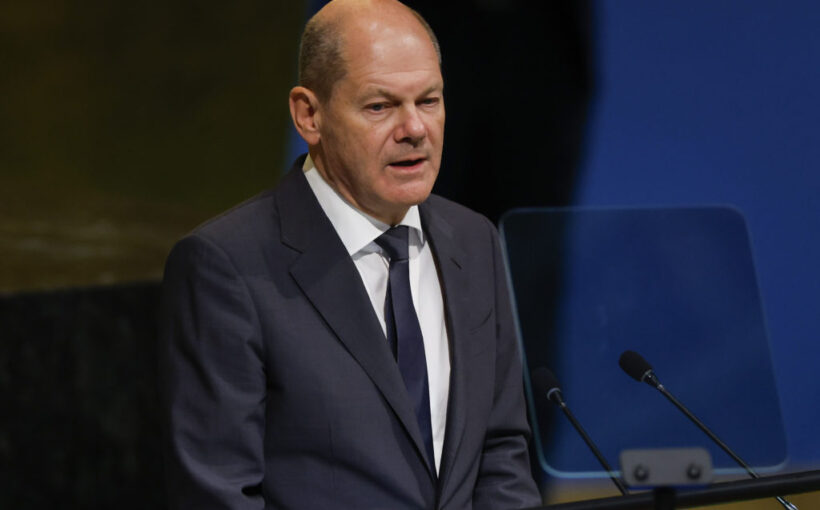The conservative alliance of the Christian Democratic Union and the Christian Social Union finished first in Sunday’s European election in Germany, winning 29.5 percent of the vote according to an early projection by infratest dimap for German public television.
While the conservative victory was expected, the real race in Germany is for runner-up.
The far-right Alternative for Germany (AfD) party was projected to finished second with 16.5 percent, according to an initial forecast, a gain of 5.5 percentage points compared to the 2019 EU election.
If the result holds, it will be seen as a big success for a party that has been beset by scandals in recent months involving allegations of espionage and corruption. Across Europe, far-right, nationalist and populist parties are projected to make sizeable gains.
Chancellor Olaf Scholz’s Social Democratic Party (SPD) finished third with 14 percent, according to the forecast. If the result holds, it will be a historic low for the party.
The Greens, who rule in a federal coalition with the SPD and the Free Democrats (FDP), are projected to finish with 12 percent, an 8.5 percentage point drop in support compared to the 2019 European election, according to the forecast.
Germany’s new populist party, Bündnis Sahra Wagenknecht (BSW), which combines left-wing economic policies with right-wing cultural views, arrived on the political landscape with a projected result of 5.5 percent. The party was founded by Wagenknecht, the longtime face of The Left party, which has been in crisis since her departure and ended up with 2.8 percent, according to the forecast.
The FDP was projected to take 5 percent.
The projections, released after polls closed in Germany Sunday, provide a first glimpse of results from the EU’s most populous country. For updates throughout the night follow POLITICO’s rolling coverage.
EUROPEAN PARLIAMENT ELECTION POLL OF POLLS
For more polling data from across Europe visit POLITICO Poll of Polls.


